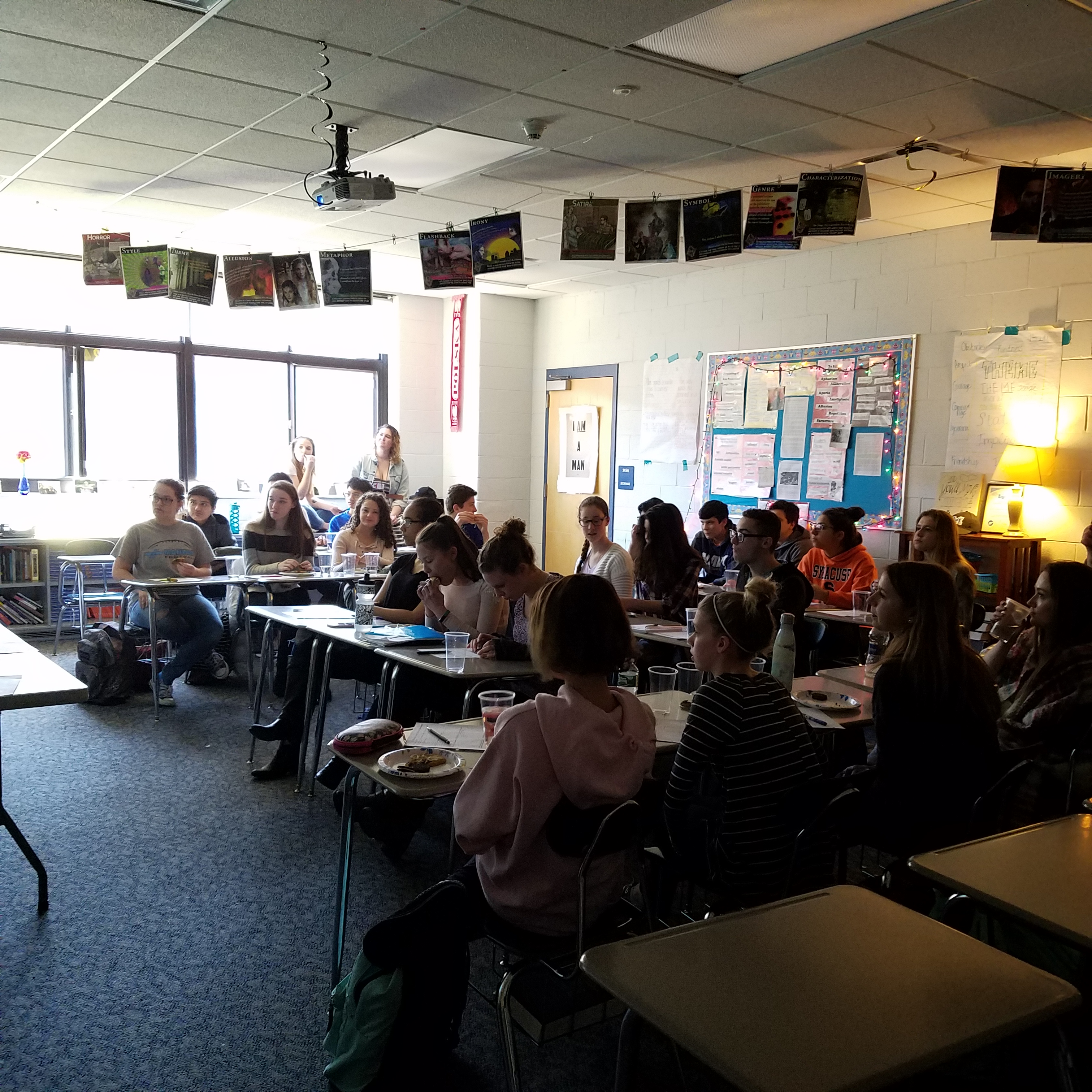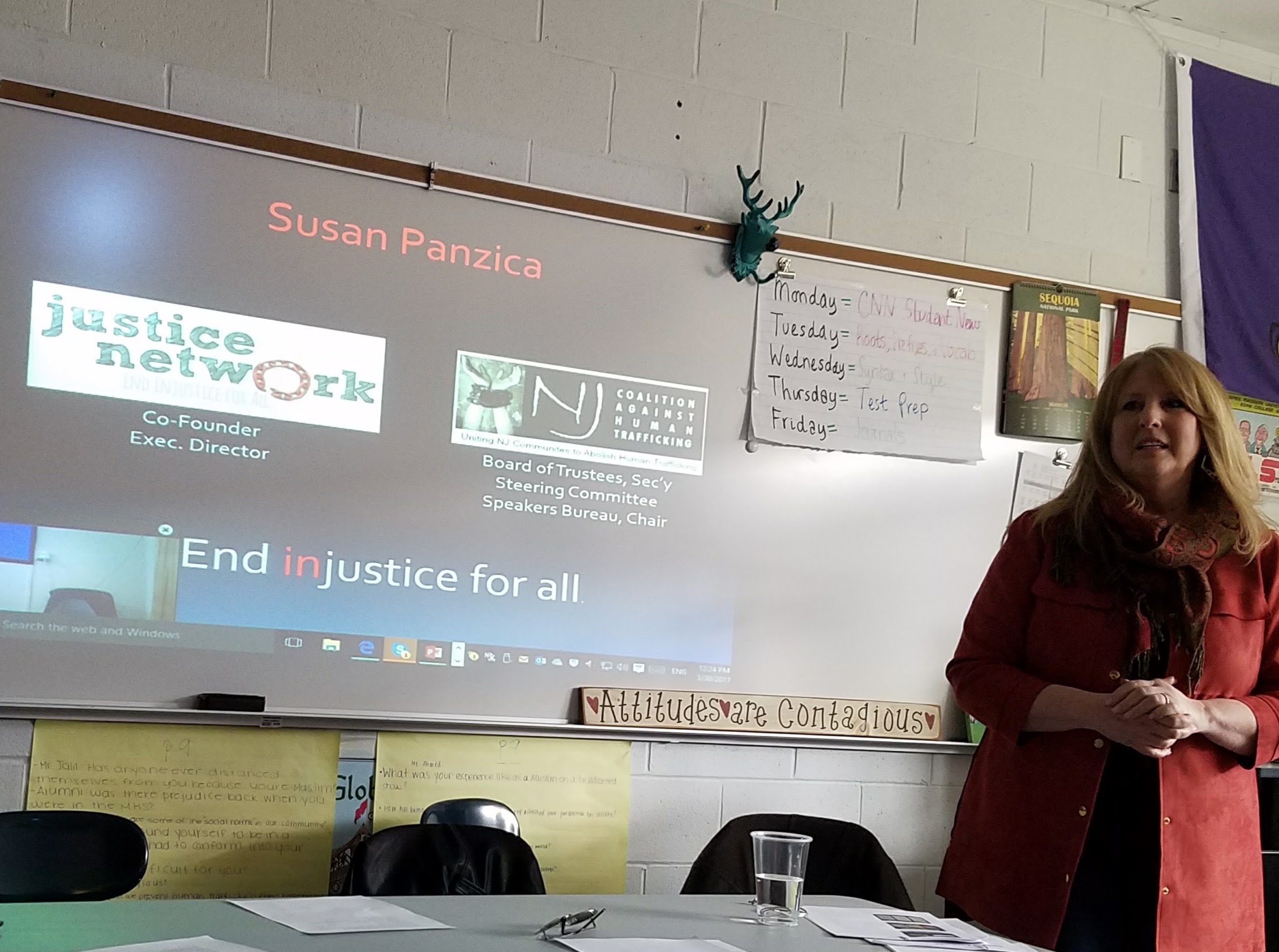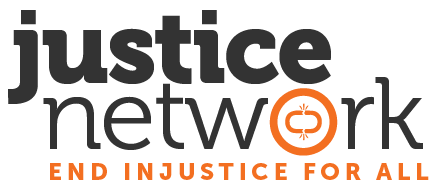During the past two weeks, as a representative of both Justice Network and the NJ Coalition Against Human Trafficking, I’ve had the honor of being a part of three panel discussions about human trafficking for three distinct groups of students. I believe that this generation of students will be the ones to see an end to human trafficking in their lifetimes, so students are my favorite audience. Their wisdom was evident in their discerning and pointed questions about this difficult and pervasive topic.
The three groups of students couldn’t be more different.
At Mahwah High School, I participated on a panel about prejudice organized by several 9th grade honors English classes and their teacher on the subject of prejudice. Joining me on the panel were a Muslim guidance counselor and a Jewish expert from the Holocaust museum.
The next week, as part of a NJ Women’s Film Festival, there were two showings of the movie SOLD, followed by panel discussions with the students. The first group was college students at Monmouth University. The second were female high school students from across Newark who came to Rutgers University’s Robeson Gallery for the event.
For the movie events, the engagement of these students in was palpable. At points during the movie, they gasped and cheered. For the panel on prejudice, the students actively took notes. At each event, the questions were insightful. And after each event, students came up to speak with me about efforts they could take to fight human trafficking.
The last question at the last event proved to be extremely perceptive. The high school student from Newark requested a two part question. Her first question:
“Why do people traffick other people?”
The asst. prosecutor replied, “Money. You can sell one pouch of drugs or a gun once, and then you don’t have it any more. You need to find more stuff to sell. But you can sell a girl 20 times a night. And then the next night, and the next.”
The student’s followup question: “So if we live in a capitalist society, and money is the motivating factor, how can we ever end human trafficking?”
I responded.
“We end it by changing the culture. We focus on ending demand. We change the way we speak and what we buy. We stop using the word ‘pimp’ as if it’s a good thing. We stop calling underage girls ‘teenage prostitutes’ because when someone is under age, they are automatically ‘victims’ of trafficking.
“In Sweden, they used legislation to change the culture. Our law in NJ is patterned after the Swedish model. Under this law, someone who is forced to be involved in prostitution is no longer a criminal. She or he is a victim of human trafficking. The criminals are the buyers and the sellers.
“When we go shopping, we need to be aware that many items, especially coffee and chocolate, are made with slave labor. If we look for the Fair Trade logo, we will know that we are buying products that were created by people given a fair wage. It may cost us a little more, but products sourced by slave labor cost others much more.
“When it becomes undesirable to buy trafficked people or merchandise made by slave labor, we will have changed the culture and have brought an end to human trafficking.”
The students’ responses at these events confirm to me that these young people are the generation that will change the culture and bring about the end of human trafficking.





